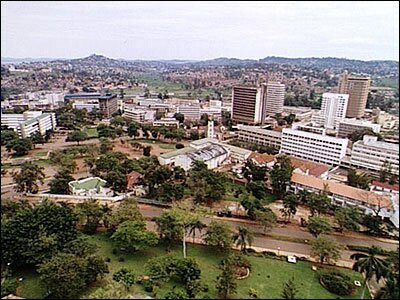 Bartamaha (Kampala):- BEFORE I travelled to Uganda for the International Conference on Interfaith, I heard that things had changed in Kampala after the July 11 bombings.
Bartamaha (Kampala):- BEFORE I travelled to Uganda for the International Conference on Interfaith, I heard that things had changed in Kampala after the July 11 bombings.
When I arrived at Entebbe Airport at about 6:00am, I discovered this for myself. As a Somali, I found myself interrogated for three hours while my host waited outside.
While I was being questioned, three international flights arrived, some of them carrying Somalis. The Somalis were called out and put aside. For all of us (Somalis) to enter the country, we had to go through a rigorous process and extraordinary screening.
When I went to visit Kisenyi, a predominately Somali suburb, a friend told me that the Somali community in Uganda experienced growing fear from the Ugandan folk and that they felt segregated.
He said Ugandans have become suspicious and they suspected every Somali to be connected to the Al-shabab.
Al-shabab is a group of thuggish and militant hard core youth who are suspected to have murdered innocent people who were watching the World Cup finals.
I am still steadfast in the belief that the people of Uganda are hospitable with a great sense of humour. It is to this side of Uganda that I now speak.
Uganda should draw lessons from other counties that share the same national security concerns. Sweden and Holland, for example, are taking a more measured approach to countering extremism by initiating programmes that are run by and within Muslim communities, particularly among the youth. It helps ease tension and the perception of others as a threat.
The Ugandan government should seek to win the hearts of the Somali community by engaging with youth groups, opening up to dialogue, community centres, sports clubs and cooperating with the whole community.
Under these initiatives, the Government would be able to earn the confidence of the community. It may lead to community-based information and intelligence that greatly increases the security of the country.
It is also likely that flows of Somali business people will want to invest in the country as they did in Kenya and the UK.
Somalis are a naturally oral society and they spread news of opportunities by word of mouth. I think its time size the opportunity and shift from extreme measures to a modern approaches. It’s a worthy mention that all these programs are less costly and more efficient.
Bottom line: President Yowri Musavni has to come out, as he did bravely, and reassure his people that Somalis can be good neighbours and great contributors to society; return their normalcy pre-11June, embrace each other as one nation, and that they are not a threat to Ugandan citizens and well-beings.
———————————-
Source:- Newvision.



